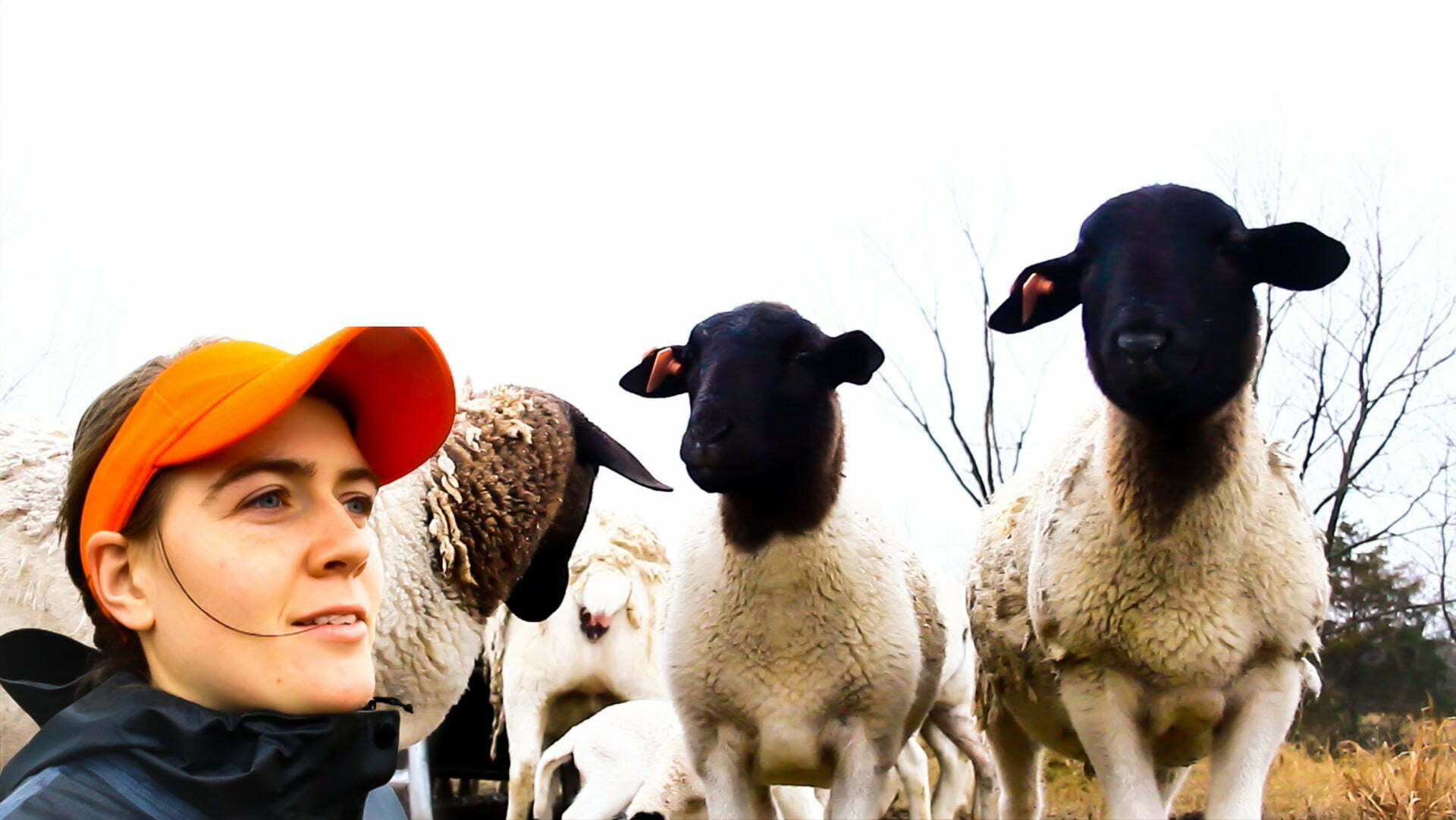The $1.5 Trillion Dollar Question: Will the Farm Bill Equal Food Freedom?
I am going to ask you to weigh in on a $1.5 trillion dollar question in the comments below, but first, I have to rewind and share something that happened last summer.
Food Freedom and The Viral Video
Last August, I made a 60-second video that went viral, and in it, I petitioned viewers to call their state representatives on behalf of the PRIME Act, a bill that (if passed into law) would allow me (and small farmers everywhere) to sell meat products processed by our local butchers… something that (believe it or not) is currently illegal.
The Cost of Compliance: USDA vs. Local Butcher
In fact, if I try to sell you this beautiful pasture-raised leg of lamb, which was grown here on my land in rural East Texas and processed by my small-town butcher 15 miles away, I could be federally prosecuted, hit with massive fines, and potentially go to jail.
This is because this meat is missing this: a USDA inspection stamp. This stamp comes when a meat product is processed at a USDA-approved facility with a USDA agent overseeing every step of the processing.
If I have this stamp, I can sell this leg of lamb to anyone in the USA, but without it, I can sell this leg of lamb to no one.
Navigating the Farm Bill
Which seemed like a major win, UNTIL I started to dig into the Farm Bill itself… and found that using the Farm Bill to pass food freedom legislation might be like renting office space in a burning building… but I want to know if you agree… So listen to these facts and give me your honest opinion in the comments section because many of you have asked for an update on this legislation since I posted that viral video last summer.
Understanding the Farm Bill: Historical Context
The first Farm Bill was constructed in 1933 as part of FDR’s New Deal, in response to the economic collapse of the Great Depression and the simultaneous agricultural collapse during the Dust Bowl of the 1930s. To this point, agricultural subsidies did not exist, and the USDA’s power was largely limited to seed collection and the distribution of information. The Farm Bill of 1933, otherwise known as the Agricultural Adjustment Act of 1933, was aimed at regulating commodity (which is mostly grain) prices by subsidizing farmers to grow or not grow certain crops based on projected market demand. It also granted the USDA a huge amount of power as the USDA largely became the intermediary agency through which a massive amount of funding flowed.
The Modern Farm Bill: A Fiscal Giant
The Farm Bill has become a true behemoth over the past 100 years. From a dollars standpoint, the Farm Bill is now the second largest piece of legislation regularly passed by the US govt. The 2023 farm bill proposed a spending budget of $1.5 trillion over the course of 5 years, up from roughly $800 Billion in 2018.
But I found out that only 10-15% of these funds are directly designated to farmers.
So something like the PRIME ACT, which is actually asking the USDA to not be involved in local meat processing, might not work so great.
The Influence of Special Interests: A Disturbing Reality
The article goes on to cite that “Rather than solving agricultural problems, the Farm Bill ‘artificially, arbitrarily and harmfully distorts a beneficial exchange of goods and services. Instead, we get political gamesmanship controlled by special interests who pay for access to politicians using the excess profits they’ve earned from their government-granted privilege.”
A Dilemma: To Engage or to Protest?
So, this is the $1.5 trillion question that I want you to answer: Should we participate in the Farm Bill by trying to cobble together favorable legislation for food freedom, or should we protest the Farm Bill in favor of a total remapping of legislation; maybe spending a little less based on the fact that the USA is running a $1 trillion per year budget deficit?
Reflecting on Personal Stance: Reconsidering Support
For me personally, what I know of the Farm Bill now has me retracting my support of pursuing favorable legislation for my small farm through it. I realize that if the Farm Bill passes, a majority of the funding will go to 4-letter agencies who are, willfully or not, making it increasingly difficult for local farmers to thrive.
Your Voice Matters: Vote Below
Vote below, and I’ll be interested in your opinion.
What happened to the 2023 Farm Bill?
For those wondering: The 2023 Farm Bill never passed, and all hopes for progress with the PRIME Act died with it. Currently, the US Govt. has sort of extended the 2018 Farm Bill, and funds are continuing to flow under 2018’s legislative framework.
